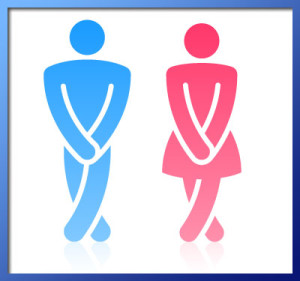Contact Us




Controlling ones bowel and bladder movements is something most of us learn at an early age. Incontinence is the loss of this control. A person with incontinence involuntarily leaks the urine or faeces or sometimes both.
In urinary incontinence, there is a sudden urge to urinate such that the person is not able to control it till he or she reaches the wash room. Faecal incontinence is a less common problem in which people might pass faeces without even realizing.
Broadly incontinence is classified into two categories:
Often there is an element of both these types leading to a third group called mixed urinary incontinence.
Reasons for incontinence
Dementia
In dementia there is damage to the nerve pathways in the brain which control the bladder and bowel movements. It can occur at any stage depending on the pre-existence of medical or health issues. The person may not recognize when the bladder is full and when not, or may even forget the way to use the toilet and how get clothes on and off.
Age related changes
Incontinence is not a normal part of ageing, there can be various reasons for this some reasons can be age related changes or some problems like irritable bowel syndrome, prostate gland problems, medication side effects, some pre-existing bowel conditions or even sometimes constipation.
Some other causes can be:
Incontinence may develop or worsen in unfamiliar surroundings, or during episodes of depression, anxiety, stress, or other illness.
Consequences
Physical consequences: Incontinence is associated with an increase in functional decline and nursing home placement, and an increase in falls. It can also result in the increased risk for developing dermatitis, skin infections, fungus, itching, and pressure ulcers.
Psychosocial consequences: Incontinence can be incredibly distressing for the person with dementia. It can have a negative impact on the overall view of health status. Emotional wellbeing, particularly anxiety, frustration, and embarrassment are the most common impacts of incontinence. Elderly often restrict their participation in social activities due to concerns about odor, failure of absorbent products, or discomfort related to skin issues. As social withdrawal progresses, depression becomes a significant risk.
Care giver consequences: The role and responsibility of a care giver caring for an incontinent patient is way more demanding and challenging. Caregivers experience problems with role change, sleeping, finances, intimacy, and social isolation, as well as negative emotions such as embarrassment. For example, it would be embarrassing for both the care giver and the person to assist them in such a private activity.
Management for incontinence
Finding and evaluating the cause of incontinence is the basic attempt to manage it. A comprehensive history and a complete physical examination form the basis of evaluation.
Incontinence significantly impacts the quality of life of an individual and is often not treatable. But proper care and management can make the problem less cumbersome and maintain a better quality of life.
We at Samvedna Care aim to help seniors live happy, active and independent lives, in the comfort of their home and community through interactive caregiving.
Samvedna Care was established in October 2013 with two complementary goals – firstly to provide quality home care services to seniors with limited mobility or dementia and hence social interaction, and secondly to facilitate stimulating community interaction and participation.
Cognitive Wellness Programme, Sector 57 Gurgaon
Samvedna’s Cognitive Wellness Programme is designed for seniors with mild cognitive impairment, early dementia or Parkinson’s, and elderly lacking in enthusiasm and motivation. The aim is to stimulate the mind of the elderly to slow the progression of the disease or impairment. The sessions are 3 days a week, 11AM-1PM.
More – http://www.samvednacare.org/our-work/cognitive-wellness-programme
Our Dementia Care services are –
At-home services
Dementia intervention activities by trained Care Specialists (already mentioned above). These services are available in Delhi NCR and Guwahati
Please call us for more info – Delhi NCR – 98184 21446, 124 4229659 | Guwahati – 9864015872
Dementia Support Group
Our Dementia Support group in Delhi NCR and Guwahati is a platform for caregivers to share feelings and support each other.
Please call us for more info – Delhi NCR – 98184 21446, 124 4229659 | Guwahati – 9864015872